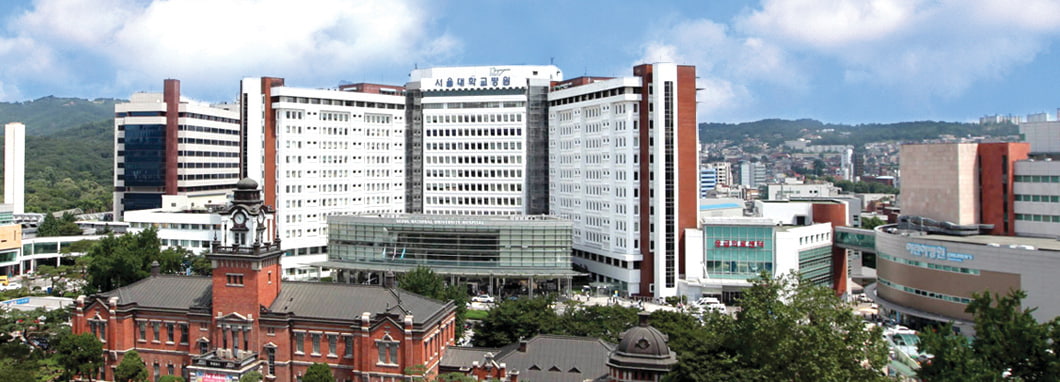- Establishment of Rare Disease Research Group (’08-’12)
SNUH RDC Introduction
Seoul National University Hospital established the Rare Disease Center in 2010 for improving the diagnosis and treatment of rare diseases.
Background
Seoul National University Hospital established the rare disease center in 2010.

Rare diseases require cooperation with various clinical departments and specialized experts, and it is difficult to have experts in every field even at large hospitals in Korea. As a result, patients with rare diseases had to travel from hospital to hospital and spend unnecessary time and medical expenses for a diagnosis. Even after receiving a correct diagnosis, many patients had to find hospitals that would support surgical treatments and rehabilitation programs for rare diseases.
Seoul National University Hospital established the Rare Disease Center in 2010 to improve the diagnosis and treatment of rare diseases and to conduct more systematic research.
In January 2019, it was selected as the Central Coordinating Center for Korean Rare Disease by the Ministry of Health and Welfare to provide technical support for the implementation of regional hubs that can improve the diagnosis, treatment, and management of rare diseases and facilitate a synergistic effect in between the hubs. Seoul National University aims to establish sensible governmental policies in rare diseases.
History of SNUH Rare Disease Center
Seoul National University has been carrying out numerous programs to establish a Rare Disease Center that would provide care to people with rare diseases.
Starting with the hosting of the Rare Disease Research Team in 2008, Seoul National University has been improving the quality of medical service for rare diseases with 11 regional hubs by carrying out programs such as Rare Disease Research Center Project, Genetic Diagnosis Program, Undiagnosed Patient Program, and others.

SNUH Rare Disease Center History
- Seoul National University Children’s Hospital Opens Rare Disease Center
- Rare Disease Intensive Research Center Project(’12-’17)
- Rare Disease Genetic Diagnosis Support Project(’12-Proceeding)
- Reorganization of the website of the Rare Disease Center
- Operation of TFT for the establishment of a rare disease center(’16-’19)
- Undiagnosed Rare Disease Diagnosis Research Program Project(’17-’22)
- Selection of the Central Coordinating Center for Korean Rare Disease (19.01)
- Seoul National University Hospital’s Rare Disease Center Establishment (19.04)
- Participation in the pilot project to build National Bio Big Data ('20~'22)
- Opening of the Department of Clinical Genomics Medicine
- Lee Kun-hee Cancer/Rare Disease Overcoming Project (Rare Disease Project) ('21~)
- Child Rare Disease AI Project (AI for Children) ('22~)
Strengths of SNUH Rare Disease Center
SNUH Rare Disease Center has strengths including Extensive Clinical Experience, World-class Medical Staff, Accurate Diagnosis and Treatment Technology, and National Rare Disease Research Center.
Seoul National University Hospital Rare Disease Center established Korea’s first multi-disciplinary integrated medical system for rare patients to minimize the time and physical burden of rare patients and to provide early diagnosis and appropriate treatment according to symptoms. With top-notch medical staff and systems, it operates over 41 adult-specific rare disease clinics and 38 rare pediatric disease clinics for systematic treatment.
In addition, we are contributing to the improvement of diagnosis and treatment of patients with rare diseases by conducting various research support programs such as the Korea Undiagnosed Disease Program (K-UDP) and the Undiagnosed Rare Disease Clinic four times a week.

It has the longest history in Korea (Seoul National University Hospital opened in 1946, Children’s Hospital opened in 1985 for the first time in Korea) and extensive clinical experiences with rare diseases.
It is composed of excellent medical staff who lead the rare disease field at home and abroad and provides optimal diagnosis and treatment methods to patients through multi-disciplinary expert consultation.
More than 70 individual rare disease clinics with integrated treatment, including diagnosis, drug treatment, surgical treatment, rehabilitation treatment, and complications management.
As a leading research institute for rare disease diagnosis and treatment technology research team designated by the Ministry of Health and Welfare, such as the Korean Undiagnosed Rare Disease Diagnosis Research Program and Genetic Diagnosis Project, we take the lead in research on rare diseases.
